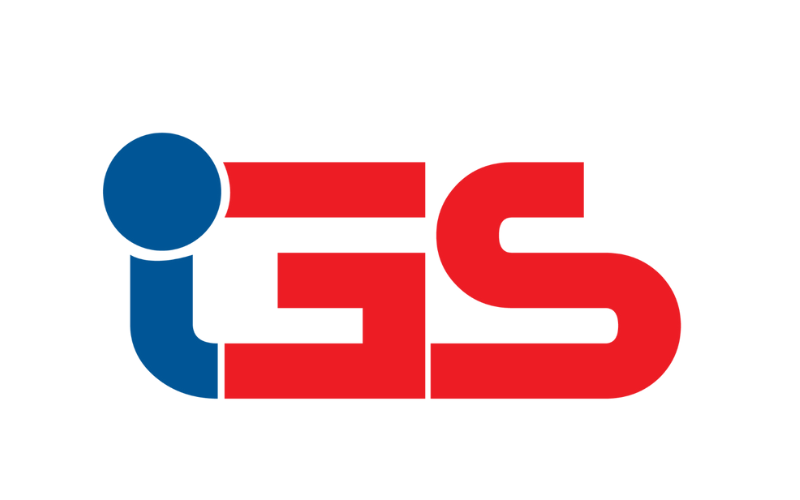
When choosing the type of entity that you will be conducting business with, it is important to take all factors into consideration. The following are the entity types available in Singapore:
-
- Sole Proprietorship
- Partnership
- Limited Partnership (LP)
- Limited Liability Partnership (LLP)
- Company
- Exempt Private
- Private
- Public
Number of Owners/Members
For those who wish to be the sole owner or shareholder of their entity, you can choose between a Sole Proprietorship and a Company.
For those who plan to have more than one owner or shareholder, you can choose between the Partnership options or a Company. However, please take note that a standard Partnership and Exempt Private Company are both limited to no more than 20 owners/members. Private Companies are limited to no more than 50 members.
LPs, LLPs, and Public Companies have no limits to the number of partners or members.
Liability
Liability is defined as responsibility for business debts and for any legal proceedings.
Unlimited liability means that you are personally held responsible for debts and legal proceedings should the business fail.
-
-
-
- Sole Proprietorship
- Partnership
- Limited Partnership – General Partner
-
-
Limited liability means that you are not personally held responsible for the debts and legal proceedings.
-
-
-
- Limited Partnership – Limited Partner
- Limited Liability Partnership
- Company
-
-
Set Up Fees
-
- Sole Proprietorship / Partnership / Limited Partnership: $115 for 1 year, $175 for 3 years
- Limited Liability Partnership: $115 for 1 year
- Company: $315 one-time
Entity Type by Business Operations
-
- LLPs are most commonly used by law firms, accounting firms, medical practices, and wealth managers.
- LPs are most commonly used by hedge funds and investment partnerships.
- Sole Proprietorships and Partnerships are most commonly used by owners that desire minimal requirements, autonomy, and lower tax rates. They are the riskiest entity type, but for owners who are not concerned about this, a Sole Proprietorship or Partnership can be an ideal option. (E.g., photography business)
- Companies are most commonly used by those that need more credibility, outside funding, and limited liability. (E.g., trading companies)

More details about each entity type:
SOLE PROPRIETORSHIP
Sole proprietorships offer a quick and easy way to set up a business, making them ideal for individuals looking for a straightforward path to entrepreneurship.
To register as a sole proprietor, the owner must be 18 years or above and a Singapore citizen, Singapore permanent resident, or EntrePass holder. If the owner is not a resident in Singapore, they must appoint an authorized representative who is ordinarily resident in Singapore.
Self-employed individuals must also top up their Medisave account with the CPF Board before registering a new business name or renewing their business registration. The set-up fee for sole proprietorship registration is $115 for a one-year registration and $175 for a three-year registration.
With minimal registration costs and less administrative duties compared to other structures, sole proprietors can swiftly establish their ventures. They also have the flexibility to renew their business registration for one or three years, providing convenience and stability.
However, sole proprietors bear unlimited personal liability for business debts, putting their personal assets at risk. A sole proprietorship is not a separate legal entity, thus the owner can sue or be sued in their individual name and can also be sued in the business name. The owner can own property in their individual name, but they are personally liable for all debts and losses incurred by the business.
Renewing business registration for one or three years provides convenience, but the business’s continuity depends solely on the owner’s desire to continue, which may pose considerations in long-term planning and succession. Lastly, the registrar can cancel registration if not renewed or if the business is deemed defunct.
PARTNERSHIP
Partnerships facilitate collaboration among two or more individuals, pooling resources and expertise. Registration fees for partnerships are similar to sole proprietorships, with a $115 fee for one-year registration and $175 for three-year registration.
Partnerships also benefit from minimal registration costs and less administrative duties, as well as the flexibility of a one or three year business registration. Partners must be 18 years or above and Singapore citizens, permanent residents, or EntrePass holders. If the owner is not a resident in Singapore, they must appoint an authorized representative who is ordinarily resident in Singapore. Self-employed individuals must also top up their Medisave account with the CPF Board before registering a new business name or renewing their business registration.
While partnerships offer quick setup and minimal costs, partners bear unlimited liability for the partnership’s debts as a partnership is not a separate legal entity. Partners can sue or be sued in the firm’s name and cannot own property in the firm’s name. Partners are personally liable for the partnership’s debts and losses incurred by other partners. The continuity of the partnership depends on the terms of the partnership agreement, which may lead to uncertainty in case of disagreements or changes in partners.
In terms of closing the business, cessation occurs by the partners’ decision to cease operations. Additionally, the registrar can cancel registration if not renewed or if the partnership is deemed defunct.
LIMITED PARTNERSHIP
Limited partnerships accommodate both general and limited partners, providing flexibility in ownership. The setup fees for LPs are the same as for sole proprietorships and partnerships. Registration requirements include having at least two partners, who can be individuals or body corporates. Partners must be 18 years or above and comply with residency criteria.
LPs allow for multiple partners without a maximum limit. If all general partners are ordinarily resident outside Singapore, they must appoint a local manager who is ordinarily resident in Singapore to ensure compliance with regulations.
Self-employed persons must top up their Medisave account with the CPF Board before they register as a partner of a new LP, become a registered partner of an existing LP, or renew their LP registration.
Limited partners enjoy protection from personal liability, limited to their agreed contribution. However, general partners bear unlimited liability for the partnership’s debts, posing risks to personal assets. The registration will be suspended if there is no limited partner, emphasizing the importance of maintaining the partnership’s structure.
A limited partnership is not a separate legal entity; the general partner can sue or be sued in the firm’s name. However, the limited partner’s liability is restricted to their agreed contribution, and they cannot own property in the firm’s name.
Cessation can occur by the general partner’s decision to cease operations or the dissolution of the LP. The registrar can also cancel registration if not renewed or if the LP is deemed defunct.
LIMITED LIABILITY PARTNERSHIP
LLPs provide limited liability protection while retaining the flexibility of a partnership structure.
Registration fees for LLPs are the same as for other structures, with a $115 fee for one-year registration and $175 for three-year registration. The registration requirements for LLPs mandate having at least two partners, who can be individuals (at least 18 years old) or body corporates (company or LLP). Additionally, at least one manager must be ordinarily resident in Singapore and at least 18 years old.
LLPs offer convenience and ease of administration with fewer formalities compared to companies. Only an annual declaration of solvency/insolvency must be lodged by one of the managers stating whether the LLP is able or not able to pay its debts during the normal course of business.
Partners enjoy limited liability, protecting personal assets from the partnership’s debts. However, LLPs are costlier to establish and maintain compared to sole proprietorships or partnerships.
Despite providing limited liability, partners are still personally liable for debts and losses resulting from their wrongful actions. A LLP is a separate legal entity from its partners; partners can sue or be sued in the LLP’s name and can own property in the LLP’s name. Partners are personally liable for debts and losses resulting from their own wrongful actions, but they are not personally liable for debts and losses of the LLP incurred by other partners.
In terms of closing the business, winding up can occur voluntarily by members or creditors, or by striking off by the registrar.
COMPANY
Companies offer separate legal entity status and limited liability protection, suitable for long-term ventures. Setting up a company involves higher costs and more formalities compared to other structures, with a $115 fee for a sole proprietorship and $315 for incorporation.
An Exempt Private Company can have 20 members or less, and no corporation holds a beneficial interest in the company’s shares. A Private Company can have 50 members or less, while a Public Company can have more than 50 members.
Registration requirements include having at least one shareholder and one director, who must be 18 years or above and Singapore citizens, permanent residents, or EntrePass holders.
If a foreigner wishes to act as a local director of the company, they can apply for an EntrePass from the Ministry of Manpower.
While companies offer stability and continuity, they must comply with extensive statutory requirements, increasing administrative burdens. Members enjoy limited liability, but they must adhere to corporate governance standards and regulatory obligations. A company is a separate legal entity from its members and directors; the company can sue or be sued in its own name and can own property in its own name. Members are not personally liable for the company’s debts and losses.
In terms of closing the business, winding up can occur voluntarily by members or creditors, or by striking off by the registrar.
At iGS, we understand that starting, running, and growing a business can be complex and daunting. That’s why we offer expert advice, custom solutions, a streamlined process, and ongoing support to guide you every step of the way. Whether you’re just starting your business venture or looking to expand, our team is here to assist you from inception to success. Let iGS be your partner in (START)Starting your business, (RUN)running it efficiently, and helping it (GROW)grow into a thriving enterprise. With our dedicated support and tailored solutions, your entrepreneurial journey is set for success. Contact us today to learn more about how we can help you achieve your business goals.

